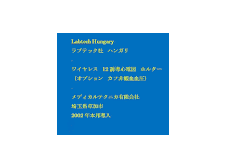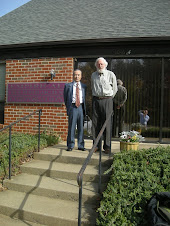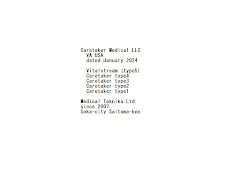2012年12月27日木曜日
クラウドが医療にみとめられる FDAが認可
The Food and Drug Administration has cleared the way for the first crowdsource-based clinical trial for an Investigational New Drug Application (IND), examining the efficacy of the ACE inhibitor lisinopril for adjunctive treatment of multiple sclerosis.
The Phase II trial is being conducted by New York-based Transparency Life Sciences. In a statement announcing the FDA approval, TLS said "This clearance is the first for a clinical trial protocol developed with the aid of crowdsourcing, and is among the first to make intensive use of telemonitoring and other remote methods for patient data collection."
TLS contends that its approach, which will use a combination of self-reported data from MS patients and contributions from clinicians and "creative thinkers with training outside biomedicine," will result in a much quicker and more economical route to more advanced trials, for both re-purposing existing drugs as well as for new compounds. Its goal, it tells physicians and researchers on their introductory page on the company's web site, is to reduce overall trial costs by 60 to 80 percent.
A key element of TLS's approach is incorporating insights gathered from a global crowd into its clinical protocols using the company's Internet-based Protocol Builder, an online tool that elicits input from patients, physicians, and researchers to help design clinical trials more efficiently and with greater relevance to clinical practice and patients' needs. The Protocol Builder page for the lisinopril trial includes 25 discrete questions/data points, from basic demographics and previous experience with trials (if any), to fears about the safety of a particular compound or trial.
A second TLS strategy is to dramatically reduce the cost and patient inconvenience of executing clinical trials by replacing patient site visits with telemonitoring and other measurements obtained from patients' homes. TLS is partnering with Advanced Monitored Caregiving (AMC Health), a comprehensive telehealth provider, for this element of the trial. In the lisinopril study, patients will visit in-person with clinical trial staff at the start and end of the trial, and all other study data will be collected at home. In return for intellectual contributions, TLS says participants will be given currency (points) which are convertible into several categories of awards as specified on its website.
The company laid part of the foundation for the lisinopril trial by signing an agreement with Stanford University in March, 2012, giving the company an exclusive option to license intellectual property covering the use of lisinopril as a treatment for multiple sclerosis. MS researcher Lawrence Steinman, M.D., is George A. Zimmermann Professor of Neurology and Neurological Sciences & Pediatrics at the Stanford School of Medicine and Chair of the TLS Scientific Advisory Board.
"Our preclinical data confirms the role of the angiotensin system in the pathology of MS and provides evidence that the ACE inhibitor lisinopril can modulate those effects in target-specific ways," Steinman said in the release announcing the clearance. "We are delighted that this novel clinical trial protocol has been cleared by the FDA, enabling us to test whether these preclinical findings can translate into a safe and affordable new therapeutic option for MS patients."
TLS says research by Steinman and others has demonstrated that angiotensin receptors and an angiotensin-producing enzyme are abundant at sites of disease and inflammation in brains affected by multiple sclerosis. In animal models of MS, studies have shown that blockade of these receptors with lisinopril reduces the areas affected by pathology and may provide significant clinical benefits, including reduction in paralysis and improved mobility.
TLS says its research is intended to speed the mid-stages of trial research, not to create consumer-ready products.
"TLS seeks to divest or partner its products to third parties (including relevant pharmaceutical or biotechnology companies) after having substantially increased their value through mid-stage development. Product commercialization activities will not be supported by TLS in the near term. In some cases (e.g. orphan indications, or where the cost of incremental development is low) TLS may consider advancing compounds into later development stages and registration activities."




















